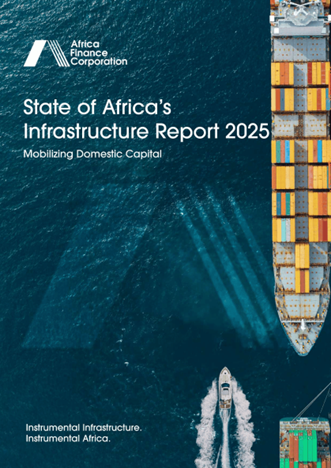
Infrastructure : Africa bets on domestic capital to redesign its future
According to the 2025 edition of AFC’s State of Africa’s Infrastructure, Africa already holds $1.1 trillion in institutional capital (pension funds, insurance, public banks, sovereign wealth funds), supplemented by $2.5 trillion in banking assets and $470 billion in central bank reserves. In total, over $4 trillion in internal resources could fund the infrastructure required for the continent’s economic lift-off.
In total, more than $4 trillion in domestic resources could finance the infrastructure needed to power the continent’s economic take-off
Yet most of this capital remains invested in liquid, low-risk assets—such as Treasury bonds and short-term placements—rather than being redirected into energy, transport, or digital infrastructure. The report therefore calls for deep financial reforms and the creation of collective investment vehicles tailored to infrastructure.
Energy: Shifting gears to fuel growth
In 2024, Africa added only 6.5 GW of utility-scale electricity capacity—compared to 18 GW in India and 48.6 GW in the United States. The report recommends doubling or tripling this pace to achieve energy self-sufficiency.
The proposed roadmap includes cross-regional interconnectors, integrated power markets, tariff reforms, and large-scale project pipeline development.
Transport & Logistics: Toward modern, competitive corridors
The report highlights a new wave of port privatisations focused on technology and modernisation, alongside the growth of private and regional rail—such as the Lobito Corridor. With 7,000 km of railways in the pipeline, the continent could double its rail infrastructure in the next decade.
Roads—especially rural ones and those connecting landlocked agricultural centers—are identified as a high-impact investment area, requiring public-private partnerships (PPPs) and corridor-based tolling models.
Industry: Processing a strategic import basket locally
The AFC identifies three priority sectors: steel, fertilisers, and oil refining. Africa imports $300 billion annually of these products. For instance, steel consumption stands at only 24 kg per capita versus 219 kg globally; for fertilisers, it’s 23 kg/ha versus 140 kg.
Brownfield investments total $16 billion, needed to modernise existing refineries. New greenfield projects are also essential to achieving self-sufficiency.
Digital: Building an inclusive and sovereign ecosystem
With the landing of high-capacity subsea cables, Africa now has fertile ground to expand fibre optics, Internet Exchange Points (IXPs), and regional data centers—the backbone of digital sovereignty.
The report lays out a clear agenda: bridge the rural–urban digital divide, gradually liberalise telecom markets—citing Ethiopia’s example—harmonise regulations on data protection, and invest in digital skills and public infrastructure such as e-ID and e-payments.
A call for coordinated action
The AFC concludes that climate contingencies, the debt crisis (with debt servicing exceeding climate aid, according to UNECA), and shrinking external capital flows make self-financing an urgent priority. The estimated annual $400+ billion infrastructure gap can only be filled by massive mobilisation of local resources.
The tools exist. The capital is available. What’s needed now is coordinated action to unlock it. African leaders must mobilise domestic resources at scale…
To do this, the mission is threefold: reform institutional fund regulations to allow long-term investment; leverage risk mitigation instruments to secure financing; and structure appropriate investment vehicles via PPPs and thematic funds. “This report provides a practical roadmap for how Africa can channel its significant financial strength into the infrastructure needed to drive industrial transformation—from scaling electricity supply to revitalising rail and building up strategic industries like steel and fertilisers. The tools exist. The capital is available. What’s needed now is coordinated action to unlock it, said Samaila Zubairu, CEO d’AFC. African leaders must mobilise domestic resources at scale… AFC’s new research conservatively estimates the value of Africa’s domestic capital pools at over $4 trillion.”


